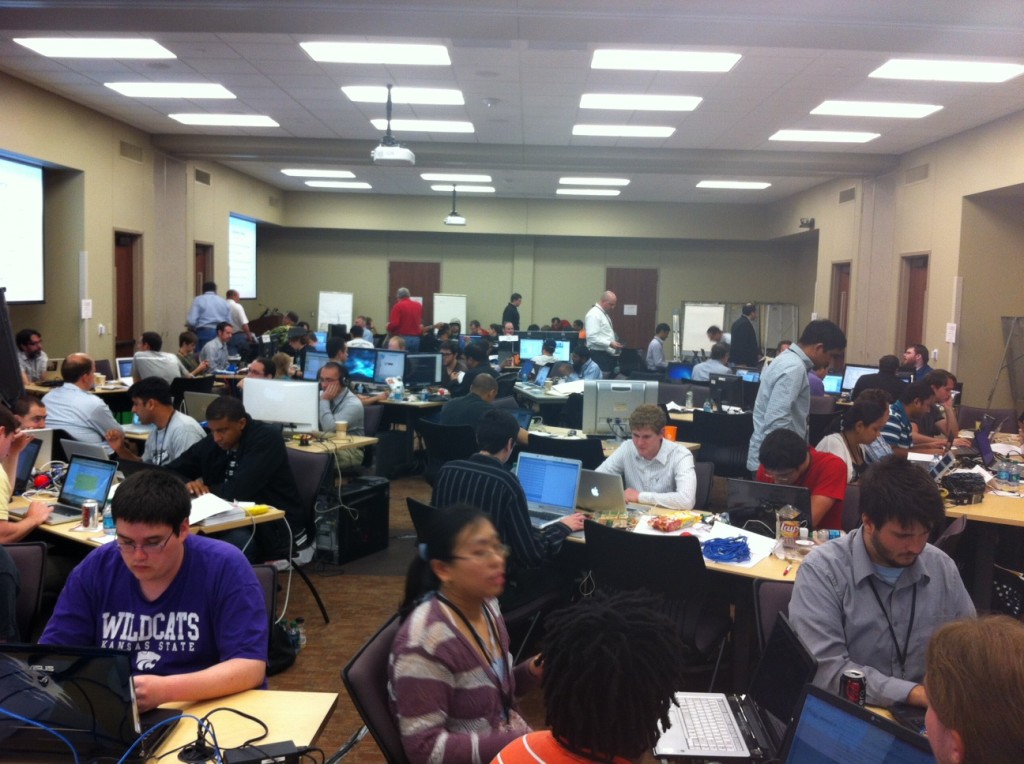Cajun Code Fest Highlights the ‘Silicon Bayou’
When you hear of ‘health tech’ or ‘health innovation’, the first places that come to mind are usually Silicon Valley, Boston or New York City. Yet, this past weekend’s event shook that notion for everyone that attended. It is not just big cities like SF, Boston or NYC that are experiencing a surge of innovation and entrepreneurship. In fact, even the smallest towns across the nation are taking technology and the power of internet to confront our nation’s growing health problems. Cajun Code Fest, in Lafayette, Louisiana, was no exception.
An incredible crew of nearly 300 entrepreneurs, health experts, students, coders, and professionals gathered in Lafayette this weekend, representing 3 countries, 15 states, and 40 cities. With Louisiana having the second highest obesity rates (after Mississippi), the code-a-thon marked an important stepping stone for the state in its battle against obesity. As obesity rates continue to rise, the epidemic is now considered one of the nation’s biggest public health problems. Bruce Greenstein, Louisiana Secretary of Health and Hospitals, described how “we have failed to take personal responsibility” for our obesity problems and we continue to blame others for this growing issue. The Cajun Code Fest symbolized how our nation’s innovators have taken it upon themselves to create solutions that would empower individuals to be responsible for their own health.
The Health 2.0 Developer Challenge team worked for several months with Dr. Ramesh Kolluru and the team at the Center for Business Information Technology (CBIT) at the University of Louisiana, Lafayette, to organize the event. The event, with sponsorship from the Office of the National Coordinator for Health IT (ONC), was part of Health 2.0′s series of highly innovative health-focused hackathon events.
This 3-day event, corresponding with the Festival International de Louisiane, started with a bang as Todd Park, US Chief Technology Officer, gave an inspiring speech about the importance of this innovation as a means to reduce healthcare costs. He even tweeted the following!
Other speakers including, Bruce Greenstein (Secretary of Health, LA DHH), Jay Walker (TEDMED), Jose Ramos (Northrop Grumman), Jared Quoyeser (Intel), and Sean Nolan (Microsoft) gave coders motivation and guidance in approaching their solutions.
While teams were only given 24 hours to come up with a working prototype aimed at reducing childhood obesity, 19 teams entered the competition, and the following teams claimed prizes:
First Place Winner ($25K - Sponsored By The ONC): Team BE CAMP VB created ‘PlayFit’, which is an online aggregator of activities that helps communities target regions with high rates of child obesity. Children have their own ‘profile’ and can connect to sponsors, learn and join activities they’re interested in and accrue points by attending events. What’s amazing is that the winning team didn’t even know each other before the start of the event!
Best Student Team ($10K): Team Flying Fighting Mongooses created ‘The Eating Game’ that helps students receive points based on their dietary choices. The game would be implemented in schools where classes can compete with each other for points and serve as an educational component to teach students what is healthy even if kids cheat to gain points in the process.
Best Startup-Ready Team: Team New Old Schoolers created ‘playguage,’ which is a site that tracks activities and gives rewards for positive health behaviors and outcomes in children. The mobile and web app allow parents to incentivize children to complete certain activities to gain points and receive rewards. As the best ‘Startup-Ready’ team, they received one year of free space and mentorship. The team included a developer who had flown all the way from Germany and is interested in starting a company in Lafayette. Way to go!
Best Game and Use of Microsoft Technology: Team PixelDash created ‘Health Hero,’ which uses the Microsoft Kinect to build a grocery bagging game that tasked children with identifying quickly-approaching foods as “fruits” or “veggies” and putting them in the right bag. The team planned to expand to categories such as ‘high fat’ or ‘low fat’ so that kids would be educated while playing. This team received one Xbox per team member, pedometers, and a full scholarship to the new gaming academy in Lafayette.
While 4 teams won prizes, all 19 teams were extraordinary innovators and troopers. Many stayed up all night, a testament to their passion to fight childhood obesity in the community and desire to make a difference. Look out for the latest and greatest coming out of the ‘Silicon Bayou!’
Here’s a brief video that sums up this weekend’s event:
(Video produced by Louisiana Hometown Network)



